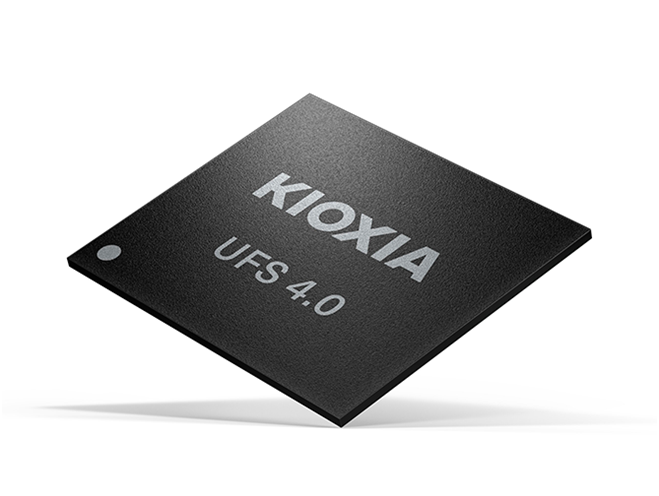New 256GB, 512GB, and 1TB flash devices allow smartphones and mobile applications to fully utilize the high speed of 5G networks
In order to continue promoting the development of Universal Flash (1) (UFS) technology, the global leader of storage solutions, Armor Corporation, recently announced that the second generation UFS 4.0 embedded flash devices with higher performance have begun to be sampled (2). Provide fast embedded storage transmission speed in a small package size, suitable for various next-generation mobile applications. The improved performance of Armor UFS products enables these applications to leverage the advantages of 5G connectivity, thereby accelerating download speed, reducing latency, and improving user experience.

Armor UFS 4.0 product will be BiCS FLASH ™ 3D flash memory and controller are integrated in JEDEC standard package, and combined with MIPI M-PHY 5.0 and UniPro 2.0, supporting theoretical interface speeds of up to 23.2Gbps per channel or 46.4 Gbps per device, and Backward compatibility UFS 3.1.
The main features include:
Performance improvement compared to the previous generation (3): 18% increase in sequential write speed, 30% increase in random write speed, and 13% increase in random read performance.
Support for High Speed Link Start Sequence (HS-LSS) feature: In traditional UFS, link start (M-PHY and UniPro initialization sequence) between devices and hosts is executed at low speed PWM-G1 (3-9Mbps (4)), but with HS-LSS, faster HS-G1 Rate A (1248Mbps) can be executed. Compared to traditional methods, it is expected that this will shorten the link startup time by approximately 70%.
Enhanced security: By utilizing advanced RPMB (replay protected memory blocks), secure data can be read and written faster, such as user credentials on the RPMB area. RPMB Purge ensures the safe and fast cleaning of unwanted RPMB data that has been discarded.
Support for Ext-IID: Designed to be used in conjunction with Multi Loop Queuing (MCQ) on the UFS 4.0 host side to improve random performance.
Note:
1. UFS (Universal Flash Storage) is an embedded storage product developed according to JEDEC UFS standard specifications. Due to its serial interface, UFS can support full duplex mode, which allows for simultaneous reading and writing between the host processor and UFS devices.
The company's latest product offers three different capacities: 256GB, 512GB, and 1TB. Samples of 256GB and 512GB products have been sent this month, and samples of 1TB products are planned to be sent after October. The specifications of the sample may differ from commercial products.
3. Compare the new 512GB UFS 4.0 embedded flash device of Armor Xia with the previous generation 512GB UFS 4.0 embedded flash device of Armor Xia (part number THGJFJT2T85BAT0).
The communication speed of PWM-G1 depends on the host and device.
When it comes to Armor products: Product density is determined based on the density of memory chips within the product, rather than the amount of memory available for data storage by the end user. The capacity available to consumers may decrease due to overhead data areas, formatting, bad blocks, and other limitations, and may also vary depending on host devices and applications. For details, please refer to the applicable product specifications. According to the definition, 1KB=2 ^ 10 bytes=1024 bytes; 1Gb=2 ^ 30 bits=1073741824 bits; 1GB=2 ^ 30 bytes=1073741824 bytes; 1Tb=2 ^ 40 bits=1099511627776 bits.
The reading and writing speed is the best value obtained by Armor Corporation in a specific testing environment, and Armor Corporation does not guarantee the reading and writing speed of individual devices. The read and write speed may depend on the device used and the size of the file being read or written.
The company name, product name, and service name may be trademarks of third-party companies.

